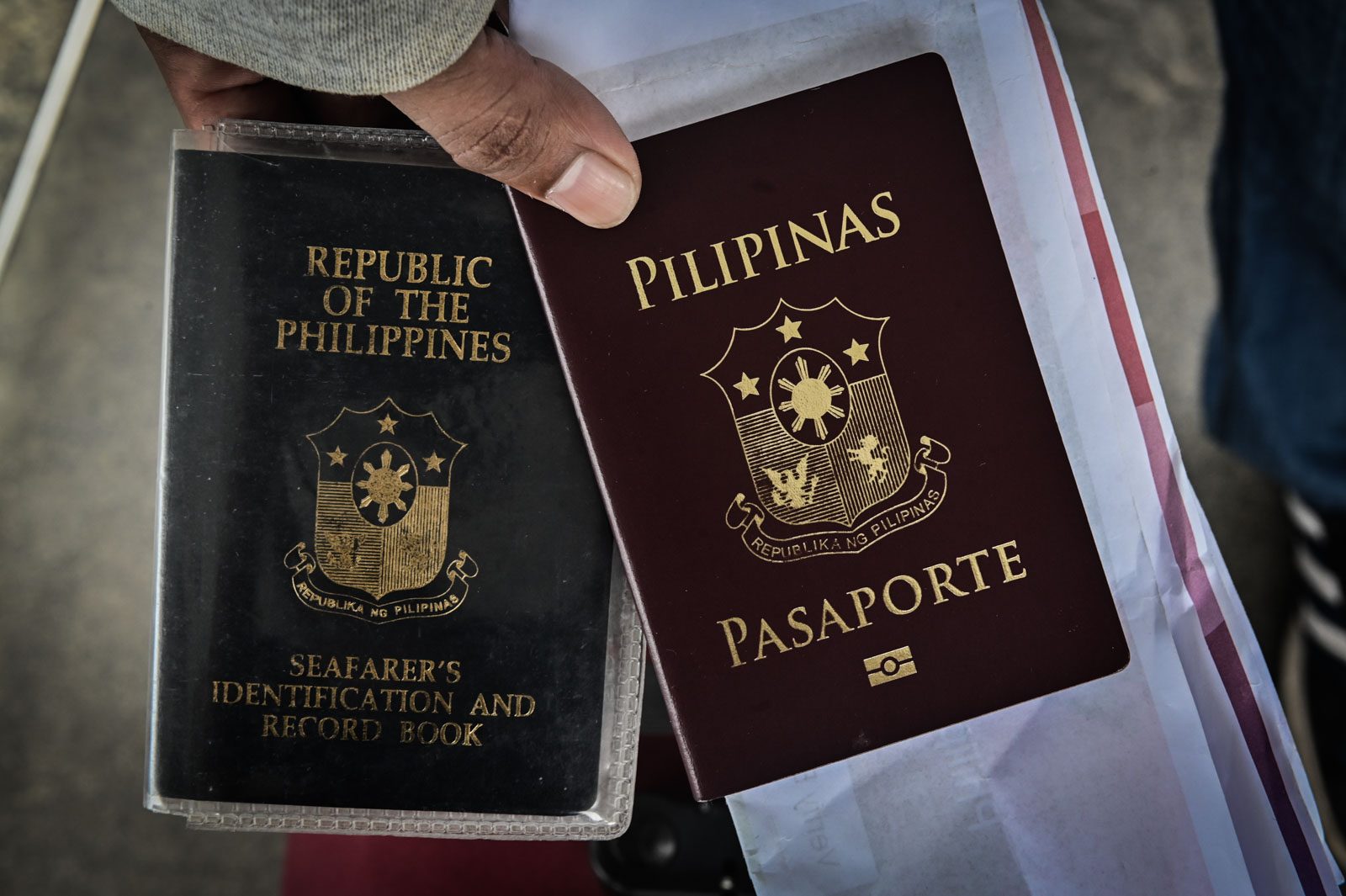SUMMARY
This is AI generated summarization, which may have errors. For context, always refer to the full article.

MANILA, Philippines – Following the European Union (EU)’s decision to continue recognizing seafarer certificates issued by the Philippines, some next challenges for Filipino seafarers and the maritime industry include stopping “ambulance chasing” and adapting to decarbonization.
In a media briefing on Monday, April 3, Francesco Gargiulo, CEO of the International Maritime Employers Council and Natalie Shaw, director of employment affairs of the International Chamber of Shipping (ICS), pointed to ambulance chasing as a big issue that may continue to affect Filipino seafarers’ employment.
Gargiulo even said that it was the “single biggest issue that the industry faces in the Philippines.”
Ambulance chasing occurs when lawyers actively go after victims of accidents, or people involved in potentially big legal issues, to persuade them to file cases against their employers to get the largest settlement possible.
The lawyers pushing this modus usually end up raking in huge amounts of commission and hidden charges, leaving the seafarer with a minimal amount from the settlement.
“It’s the reason why a number of our members, maritime employers, have decided to shift their manpower source away from the Philippines and towards perhaps sometimes less qualified manpower sources,” said Gargiulo.
Ambulance chasing specifically involving seafarers is illegal under Republic Act No. 10706 or the Seafarers Protection Act.
ICS senior manager of policy and employment affairs Helio Vicente reported, while not specifying the time period, that there was a decrease in Filipino seafarers from comprising 20% of seafarers worldwide to around 14.4%.
Vicente said one of the reasons for the decrease was ambulance chasing.
Shaw added: “It’s very important to us that the system is reviewed to make sure that appropriate measures are put in place, and to mitigate the situation of ambulance chasing so that the Filipino seafarers can be seen as a viable option in the global fleet.”
Gargiulo expressed confidence that the resurgence of demand for Filipino seafarers would come once ambulance chasing is addressed. He said one way to address this would be the passage of the Magna Carta for Seafarers, which the House of Representatives has approved.
“I’m very confident that if we were to get to a place at some point… where we have a Magna Carta in place that defends the seafarers’ rights as well as protects some of the employers from abuses such as ambulance chasing, we will see a resurgence of Filipino numbers,” said Gargiulo.
“[This,] combined with the action that the President and his government are taking when it comes to education and certification in the country, we will see the Philippines coming back to the sort of percentages of world fleets that they used to enjoy,” Gargiulo added.
Skills needed for decarbonization
Countries across the globe have expressed a net-zero target for decarbonization by 2050, and these commitments involve the shipping industry. According to the EU, the global shipping industry accounts for 3% of worldwide greenhouse gases.
In COP 26, the United Nations’ climate change conference in Glasglow in 2021, the Maritime Just Transition Task Force was set up. In the Monday press conference, Vicente highlighted the importance of introducing new trainings for seafarers in handling energy sources that would support the decarbonization agenda.
“What we’re looking at with the Maritime Just Transition Task Force is not the ship, which is essentially what a lot of the discussions around decarbonization focus on. What we’re looking at really is the people. So the seafarers, those that will be required to develop new skills [and] handle new alternative fuels,” said Vicente.
Ammonia, for example, is sometimes used as a shipping fuel and has toxicity implications that maritime workers need to understand. Hydrogen, while seen as a clean energy source, has flammability issues.
Vicente said that the industry would need up to 800,000 seafarers to develop new skills by the 2030s.
Why Filipino seafarers are hirable
Prior to the EU decision on Friday, March 31, the Philippines had grappled for nearly 20 years the issue of non-compliance with international maritime standards. One of the main issues the European Maritime Safety Administration (EMSA) pointed to was with maritime studies curricula and training standards. Despite this, the country remained one of the top suppliers of seafarers across the world.
How did Filipinos remain so hirable? Shaw explained that the issues were not with the Filipino seafarers’ practical skills, but with administrative processes in training and documentation. Gargiulo added that maritime schools did not implement curricula uniformly across the country.
“Every year the Philippines produces… 30,000 maritime graduates, [and] 3,000 of these get a job in the fleet. That’s a large number. However, that’s a 10%. So what that tells you is that there’s a number of institutions in the Philippines that have done the right thing, that have the right standards, and that are loved by our employers. But there’s also a number of institutions that are not at the same level,” said Gargiulo.
“And this is what happens when an organization like EMSA comes to the Philippines. They don’t look at the top 10, the top five, the top whatever. They look at the entire country. When they look at the entire country, they find that the standard is not the same across the board. And those are the concerns that EMSA has been raising for years,” he added. – Rappler.com
Add a comment
How does this make you feel?
![[Vantage Point] Seafaring industry suffers steep freefall](https://www.rappler.com/tachyon/2023/03/Seafaring-industry-suffers-steep-freefall.jpg?fit=449%2C449)














There are no comments yet. Add your comment to start the conversation.